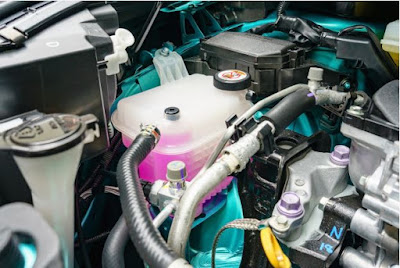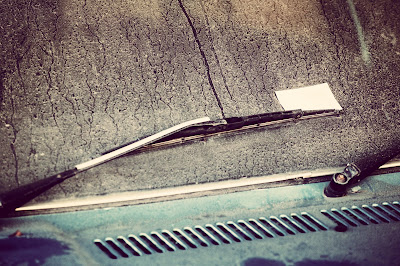
7 Car Maintenance Checks That You Should
Definitely, Be Doing
Performing regular car maintenance checks both above and under the bonnet is an essential responsibility for any motorist. Whether you have a long journey ahead or just your yearly MOT, performing these simple checks regularly could save a lot of time and money as well as keeping you safe on the road.
To keep your car in good working order and on the right side of the law, here are seven simple checks that you can perform on your driveway.
Fuel

Although it may seem like an obvious check, it is estimated that approximately 800,000 individuals run out of fuel on the roads each year. When you run your fuel tank down to nothing, the engine will start to draw air. A build-up of air can prevent your car from starting again, even after you have filled up.
If you are running your diesel vehicle on fumes, you are risking more severe damage, such as damaged seals and even fuel injectors. Save money and make sure you're topped up with enough fuel to get you to your destination.
Oil

Having the right level of oil is essential for keeping your engine happy and healthy, but did you know that one in three vehicles recovered in an emergency has dangerously low oil levels? Low oil levels can cause not only a breakdown, but it can also lead to catastrophic damage to the engine.
Ensure that you have enough oil for your journey by checking that the level is between the minimum and maximum mark on your car's dipstick. If you’re unsure what type of oil your car needs, check your owners manual or speak to a local mechanic or dealer.
Coolant
If you want to avoid your car freezing or even overheating, then it’s good practice to check your coolant levels. Although this shouldn’t need topping up between journeys, you should always double check, especially during the colder and warmer months.
If you notice that your coolant levels have fallen below the minimum marked level, you should top it up immediately. Always check your owners manual for the correct coolant and ensure that the engine is cold before you top up the reservoir.
Screen Wash
Screen wash is regularly used throughout the year, so it’s essential to make sure that your levels are adequate for your journey. During the colder months, snow and grit can very quickly cause a dirty window, while during the Summer smears from pollen and insects can obstruct your view.
Keep your windscreen clear by checking your levels regularly.
Engine Air Filter
Engine air filters protect your engine by preventing harmful debris, dirt and other contaminants from entering. A faulty or even clogged-up air filter can reduce your overall fuel efficiency and also lead to a reduction in engine power. Mechanics recommend replacing the filter once a year or 12,000 miles.
If you have noticed a drop in fuel efficiency, or feel that your car isn’t pulling as much power from the engine, it may mean that it’s time for a replacement. The fuel filter can be located under the bonnet, in a black box. Always consult your owners manual for full instructions.
Rubber
When you think of rubber, you may only be thinking about your tyres. However, tyres and windscreen wipers are both necessities that shouldn’t be neglected. Tyres undergo pressure every journey, so checking the air levels and tread depth is vital. The minimum level of the tread is 1.6m. However, it is advised that during the Winter months your tyres should have 3mm to assist with traction and grip.
Keeping the wheels that keep you on the road in a healthy condition is as important as being able to see where you are going. Wiper blades are used regularly and wear over time. If you’ve noticed the rubber splitting or that they are not clearing the screen as well as they used to, then it’s time for a new set!
Brakes
While we look at our cars as a means to get out on the road and to get going, it’s also imperative to be able to stop the momentum safely. The importance of functioning brakes can’t be stressed enough, so keeping them properly maintained is essential.
To ensure your brakes are in good working order, first check the brake fluid and top up if necessary. The brake fluid can be located within your engine bay. If you have noticed that your brakes have started to score or make a loud noise while braking, it’s vital that you get a mechanic to look at your brake pads as soon as possible.
Looking for a part for your Vauxhall? Get in touch with our team today, we have been around for many years, and it’s safe to say we know our stuff when it comes to all things Vauxhall.






No comments:
Post a Comment
Note: only a member of this blog may post a comment.